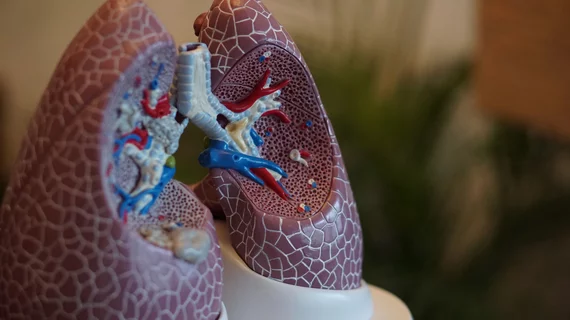RSNA offering cash, massive dataset for AI solutions to tackle pulmonary embolism
The Radiological Society of North America launched its fourth annual artificial intelligence challenge on Thursday, with this year’s iteration targeting pulmonary embolism.
RSNA is asking researchers to create machine learning algorithms that help radiologists detect and characterize instances of the condition. The Oak Brook, Illinois-based society is offering a total of $30,000 across the top 10 winning teams, with a trove of 12,000 computed tomography scans on hand to fuel the effort.
“We anticipate that this year’s challenge will ignite interest in pulmonary embolism detection as an AI use case by demonstrating what can be achieved with a very large, well annotated multi-institutional dataset, and will advance radiology toward improving patient care with AI,” John Mongan, MD, PhD, a member of the RSNA’s Radiology Informatics Committee and vice chair of its machine learning subgroup, said Sept. 10.
RSNA teamed with the Society of Thoracic Radiology to gather thousands of images from five international research centers for the challenge. More than 80 thoracic radiologists also helped annotate all of the information. The society said this is the first year in which it will host a code submission-style competition, aimed at creating models that are both efficient and easily replicated. Interested developers must submit their algorithm by Oct. 26 and RSNA will announce the winners Nov. 23. Last year’s competition focused on intracranial hemorrhage detection.
You can find more details in entering via this RSNA news announcement.

